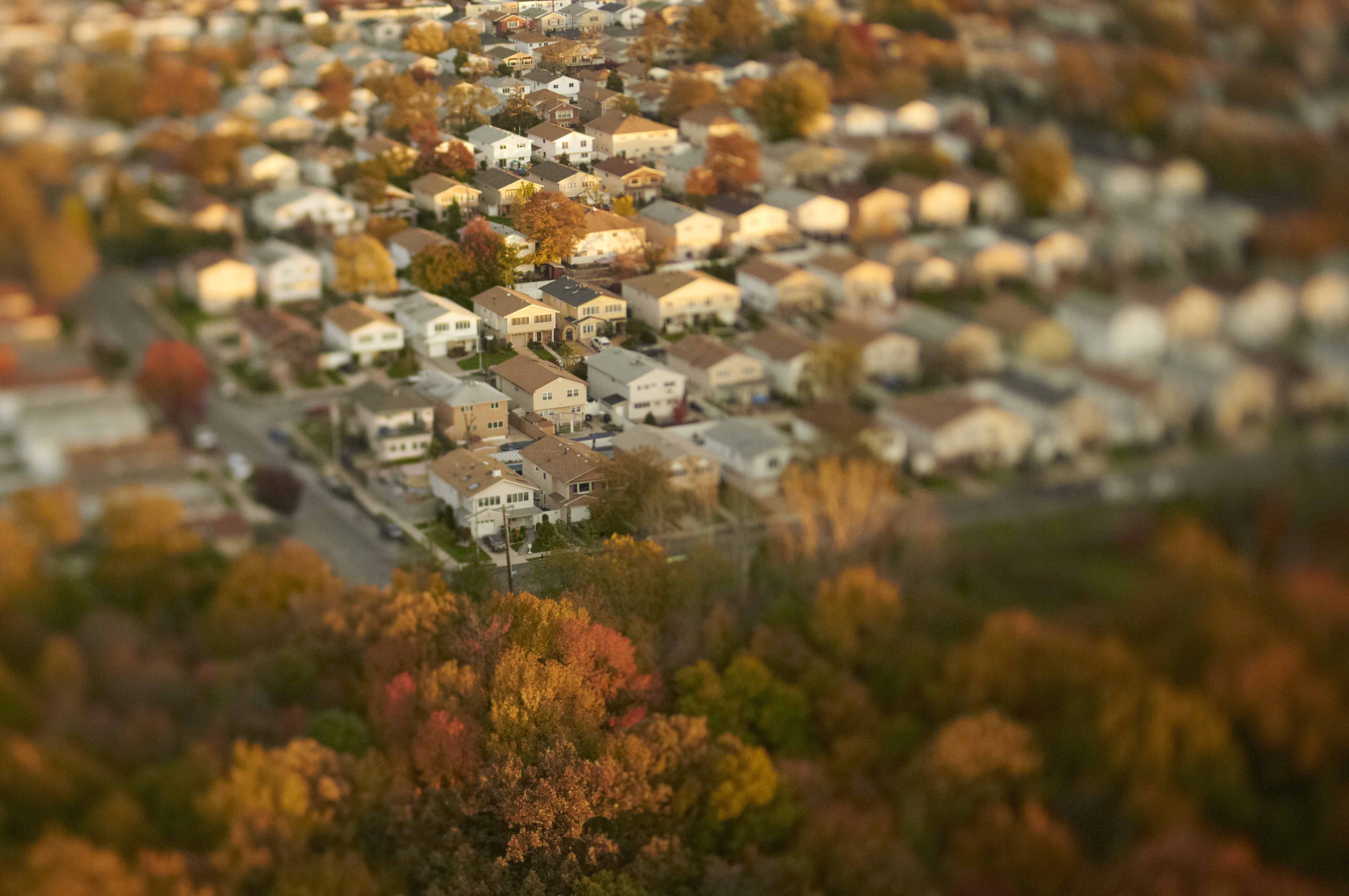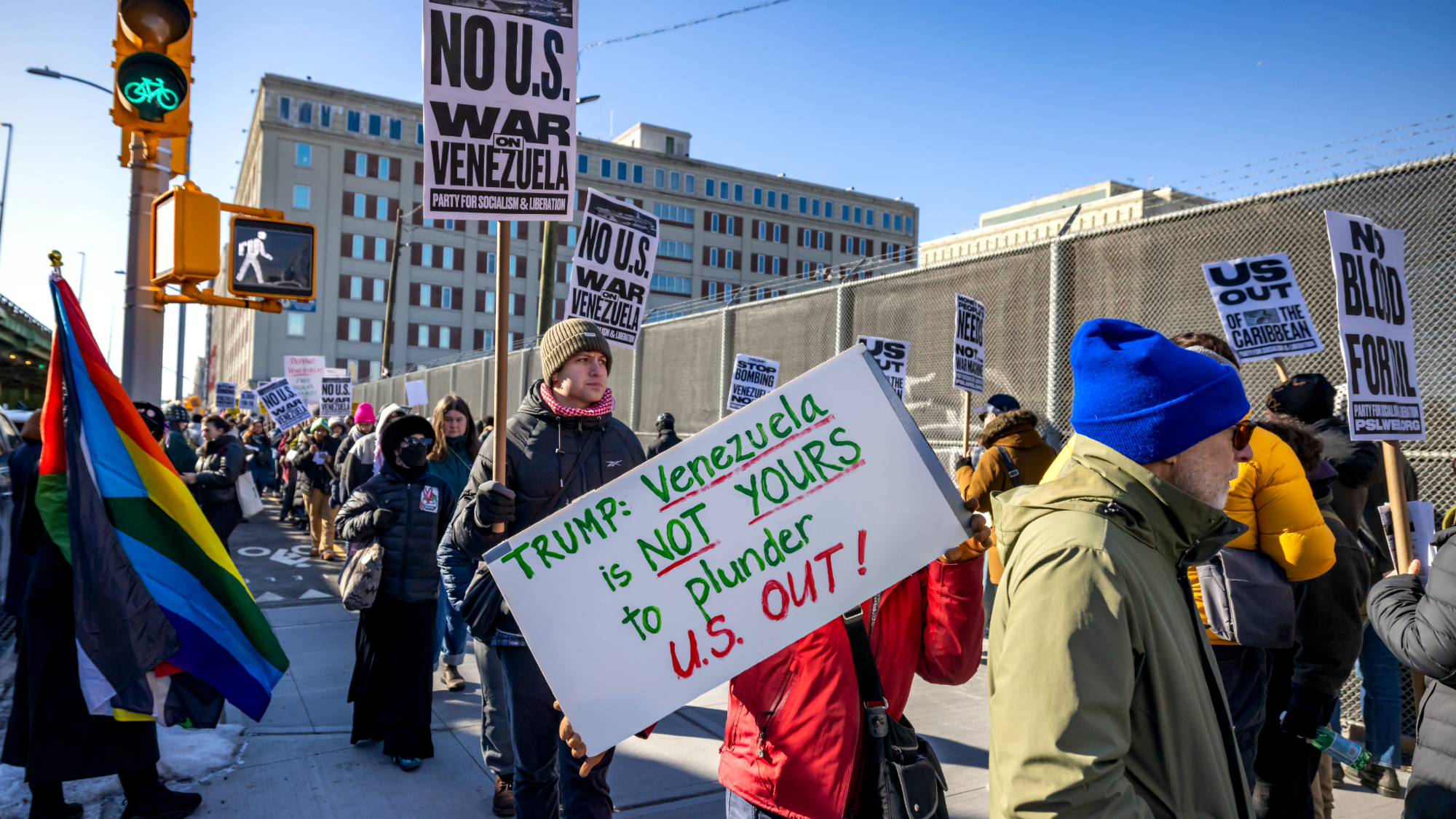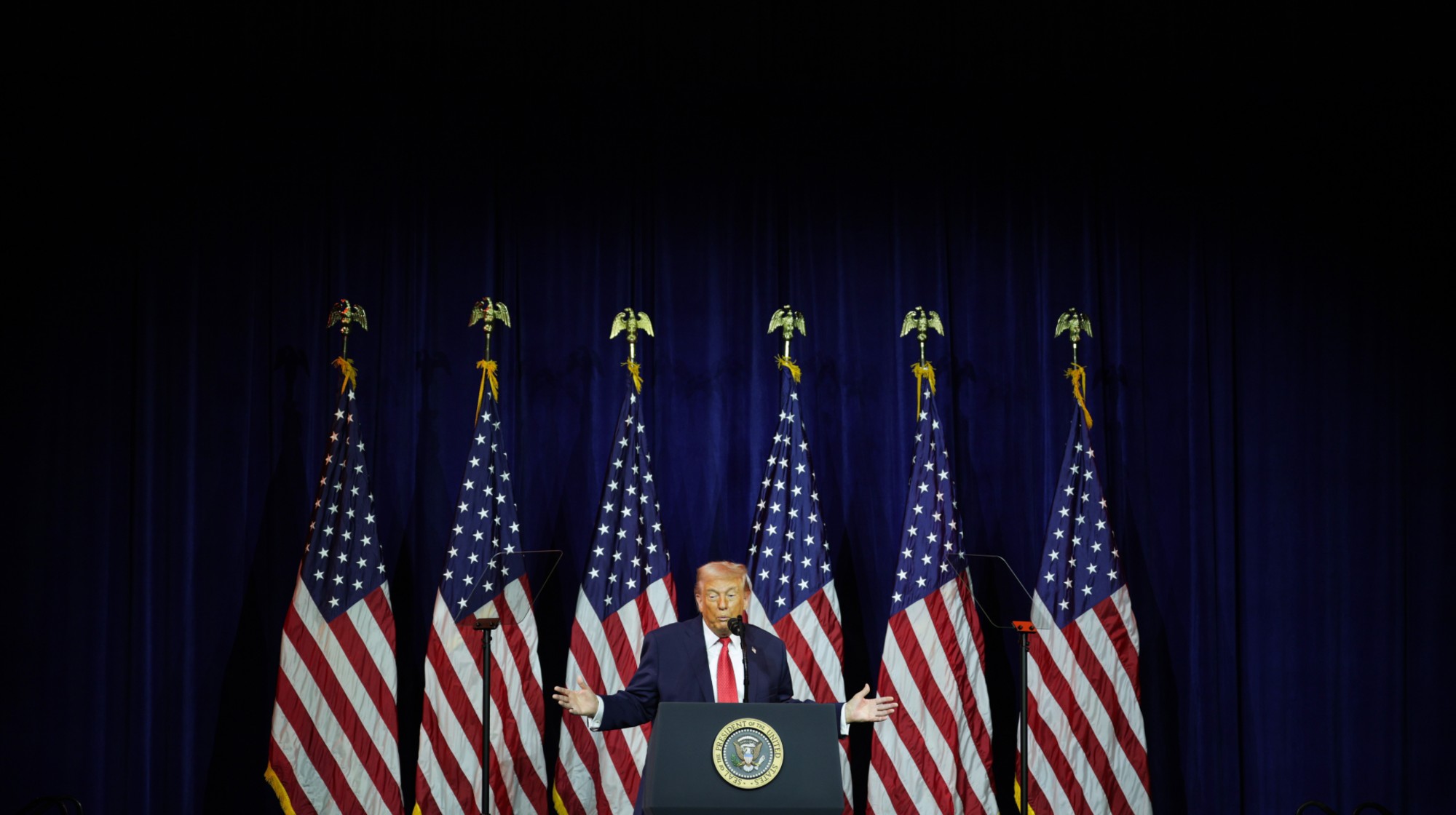This is how the suburbs die
Not with a bang, but a corporate lease


In 1974, corporate behemoth GE moved its headquarters from Manhattan to the suburban Fairfield, Connecticut. Last week, it announced that it was leaving Fairfield for Boston's waterfront district. And as GE goes, it has people wondering whether the suburbs are going to lose their economic lifeblood.
Mad Men reminded us that mid-century advertising executives worked in the heart of Manhattan, but slowly began their retreat to the burbs as crime exploded in New York City. The corporate offices followed them and their growing families in the 1970s and 1980s.
It created an environmental effect. Westchester, New York, has IBM, Pepsi, MasterCard, Atlas Air. Fairfield has Time Warner Cable, WWE, Ethan Allen, Priceline and many more. This diffusion throughout the suburbs allowed executives to keep their family in one town for years, but still be able to change companies throughout their career.
The Week
Escape your echo chamber. Get the facts behind the news, plus analysis from multiple perspectives.

Sign up for The Week's Free Newsletters
From our morning news briefing to a weekly Good News Newsletter, get the best of The Week delivered directly to your inbox.
From our morning news briefing to a weekly Good News Newsletter, get the best of The Week delivered directly to your inbox.
That trend is reversing in a major way. Violent crime has fallen for two decades, faster in some of the cities than elsewhere. Connecticut has really been hammered by the trend away from suburban campuses. Aetna demolished a 1.3 million-square-foot campus in Middletown in 2011. That site is vacant. Pfizer dumped a research campus in Groton after that. The suburbs around Chicago, which once gladly received Sears' corporate headquarters, may be hit next.
Many trends could push corporate headquarters back into the cities and begin the impoverishment of suburbs. Environmental concerns may shift public policy to reduce subsidies to the high-carbon lifestyle of the suburbs, or further subsidize the lower-carbon lifestyle of mass-transport living in big cities. Younger people are overall delaying marriage and childbearing even further, and expressing their preference for the big cities over the suburbs.
When GE announced the move to Boston, Jeff Immelt said that it wasn't about taxes and regulations as much as the "ecosystem," adding: "Greater Boston is home to 55 colleges and universities. Massachusetts spends more on research and development than any other region in the world, and Boston attracts a diverse, technologically-fluent workforce." In other words, GE has to compete for top talent coming out of universities. If they can't offer an urban workplace, they will lose out to tech-startups and other companies who do.
The elite in our culture have almost always viewed the suburbs with some contempt. They are places scrubbed of physical danger at the cost of mediocrity, soulless consumerism, and despair. Further, the suburbs are now widely-condemned as the moral and policy expression of racism; created to accommodate white flight and to further impoverish blacks. The view that the suburbs are a moral and political hazard is seeping down.
A free daily email with the biggest news stories of the day – and the best features from TheWeek.com
And so what we are seeing in America seems to be a shift to more European model, of fantastically wealthy cities and increasingly–slummy suburbs. The trend is truly exaggerated in Atlanta:
Fully 88 percent of Atlanta's poor live in the suburbs, according to Confronting Suburban Poverty in America, by Elizabeth Kneebone and Alan Berube of the Brookings Institution. Between 2000 and 2011, Atlanta's suburban poor population grew by 159 percent, while the city's poor population remained essentially flat.It's not just Atlanta — across much of the country, poverty is increasingly a problem found in the suburbs. The number of poor in the suburbs surpassed the number of poor in the cities in the 2000s, and by 2011, almost 16.4 million suburban residents lived below the poverty line, according to Kneebone and Berube. [The Atlantic]
The same holds true in Washington, D.C. where gentrification keeps marching eastward across the city, pushing more and more poorer residents out to Prince George's county Maryland.
Another possible accelerant of the trend is that pushing the poor into the suburbs also pushes crime into the suburbs. This may take a while to break through. The city's reputation for danger far outlived the reality. Suburban reputation for safety may hang on similarly, but between 2000-2010, homicides fell 16.7 percent in big cities, but they rose 16.9 percent in the suburbs.
There are some potential breaks on this trend, namely the lack of affordable housing in many cities. Global cities that have experienced major booms in the past quarter century, like San Francisco, New York, London, and Dublin all have been very slow to allow the construction of new affordable homes for families, much to the delight of current property-owners in those cities. And it is still true that younger and larger families prefer the public schools available in the suburbs to those in the city. If crime returns to cities in any major way, that would also act as a major break on the re-urbanization of corporate America.
But for now, the slow economic strangulation of formerly-affluent suburbs seems overdetermined. Some corporate campuses may remain for lower-paid back office functions, but American companies, and the economic elite who must captain them, are returning to the city.
Michael Brendan Dougherty is senior correspondent at TheWeek.com. He is the founder and editor of The Slurve, a newsletter about baseball. His work has appeared in The New York Times Magazine, ESPN Magazine, Slate and The American Conservative.
-
 Why Puerto Rico is starving
Why Puerto Rico is starvingThe Explainer Thanks to poor policy design, congressional dithering, and a hostile White House, hundreds of thousands of the most vulnerable Puerto Ricans are about to go hungry
-
 Why on Earth does the Olympics still refer to hundreds of athletes as 'ladies'?
Why on Earth does the Olympics still refer to hundreds of athletes as 'ladies'?The Explainer Stop it. Just stop.
-
 How to ride out the apocalypse in a big city
How to ride out the apocalypse in a big cityThe Explainer So you live in a city and don't want to die a fiery death ...
-
 Puerto Rico, lost in limbo
Puerto Rico, lost in limboThe Explainer Puerto Ricans are Americans, but have a vague legal status that will impair the island's recovery
-
 American barbarism
American barbarismThe Explainer What the Las Vegas massacre reveals about the veneer of our civilization
-
 Welfare's customer service problem
Welfare's customer service problemThe Explainer Its intentionally mean bureaucracy is crushing poor Americans
-
 Nothing about 'blood and soil' is American
Nothing about 'blood and soil' is AmericanThe Explainer Here's what the vile neo-Nazi slogan really means
-
 Don't let cell phones ruin America's national parks
Don't let cell phones ruin America's national parksThe Explainer As John Muir wrote, "Only by going alone in silence ... can one truly get into the heart of the wilderness"



